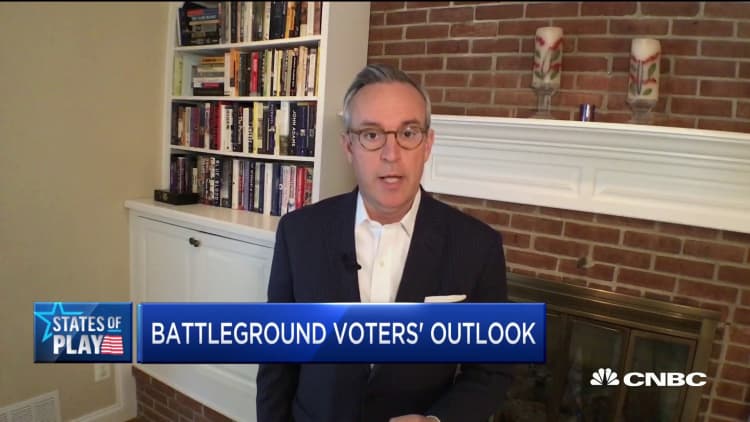White House economic advisor Larry Kudlow said on Sunday that the Trump administration is in informal talks with U.S. lawmakers from both parties regarding the next coronavirus relief package.
The White House has halted formal negotiations with Congress until late May or early June as it waits for more information about how state re-openings and the previous round of relief impact the economy.
"It's not that we're not talking. We are. It's just informal at this stage," Kudlow, the director of the White House's National Economic Council, said on ABC's "This Week."
Senate Democrats and Republicans have a conference call scheduled on Monday with Kudlow and White House economic advisor Kevin Hassett to discuss ideas for next steps. Kudlow and Hassett held a conference call with 50 members of the House on Friday to discuss the coronavirus response.
Lawmakers have passed four major relief packages to address the damage from the coronavirus as the unemployment level has surged to levels unseen since the Great Depression and many businesses remain shuttered.
House Democrats are aiming to vote on their next relief proposal as soon as next week, which could include money for state and city governments, testing and another round of direct payments to Americans. The next Democratic legislation could approach $2 trillion.

However, Republicans in the Senate and White House are downplaying the need for more aid as they push for a quicker reopening of the economy.
Senate Majority Leader Mitch McConnell, who has not ruled out another relief bill, has called for a pause on new aid to assess the impact of the first round of relief. White House economic advisor Hassett said the administration may support a limited form of relief for state and local governments after evaluating the impact of current measures.
"We think we have a little moment, a luxury of the moment, to learn about what's going on so that the next step that we take can be prudent," Hassett said on Sunday during an interview with CNN's "State of the Union."
"President Trump has signaled that while he doesn't want to bail out the states, he's willing to help cover some of the unexpected Covid expenses that have come their way," Hassett said.
Treasury Secretary Steven Mnuchin said Sunday that the administration is pushing for a payroll tax cut in the next aid package to allow people to take home more money from their paycheck, despite criticism that the tax cut would not help the millions of people out of work. He also echoed comments from Kudlow and Hassett on the administration skepticism regarding financial assistance for cash-strapped state and local governments.
"We just want to make sure that before we jump back in and spend another few trillion of taxpayers' money that we want to do it carefully," Mnuchin said in an interview on "Fox News Sunday." "We're willing to spend whatever it takes. But whatever it takes needs to be done carefully," he said.
The virus outbreak has killed more than 78,000 people in the U.S. The unemployment rate jumped to 14.7% on Friday after a record 20.5 million workers lost their jobs in April.


